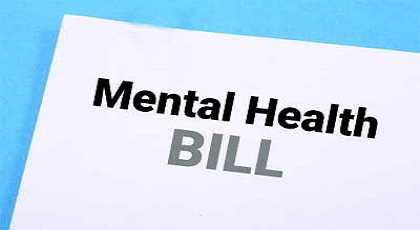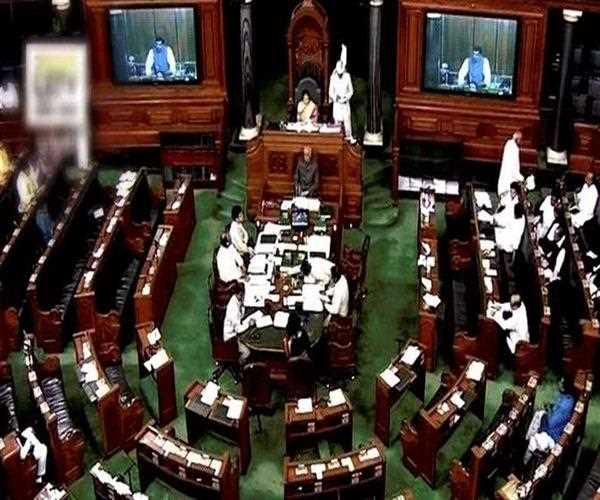The Mental Health Care Bill, 2013 was passed by Rajya Sabha on Monday, and is relied upon to be examined in Lok Sabha soon. The Bill looks to supplant the Mental Health Act, 1987. In 2007, India approved the United Nations Convention on the Rights of Persons with Disabilities, which requires signatory nations to change their laws to offer impact to the privileges of people with psychological maladjustment. It was trusted that the 1987 Act did not sufficiently secure these rights, and a need was felt to furnish them with better treatment and enhance their entrance to wellbeing administrations.

Anyway, what sorts of dysfunctional behavior are secured under the Bill?
Dysfunctional behavior was before characterized as any psychological issue other than mental hindrance. The Bill go by Rajya Sabha characterizes dysfunctional behavior to mean a confusion of reasoning, temperament, discernment, introduction or memory. Such a confusion disables a man's conduct, judgment, ability to perceive reality or capacity to meet normal requests of life. This definition additionally incorporates mental conditions related with substance manhandle, and does exclude mental impediment.
What is the number of inhabitants in the rationally sick in India?
There are no official gauges as of now. In 2005, it was assessed that 6-7% of the populace experienced mental issue, and around 1-2% experienced serious mental issue, for example, schizophrenia and bipolar issue. About 5% of the populace experienced normal mental issue, for example, despondency and nervousness. Be that as it may, genuine numbers could be higher, as psychological instability regularly goes underreported due to the related disgrace. The World Health Organization has as of late assessed that 1 out of 4 people will be influenced by some type of psychological maladjustment once in their lifetime.
What's more, what are key rights being ensured under the Bill?
Way of treatment: The Bill expresses that each individual would have the privilege to determine how he might want to be dealt with for psychological instability in case of an emotional wellness circumstance. An individual will likewise indicate will's identity the individual in charge of taking choices as to the treatment, his induction into a doctor's facility, and so on.

Access to general medicinal services: The Bill ensures each individual the privilege to get to emotional well-being consideration and treatment from the legislature. This privilege incorporates reasonable, great quality, simple access to administrations, for example, least emotional well-being administrations in each locale. People with psychological instability additionally have the privilege to equity of treatment and insurance from brutal and debasing treatment.
Suicide decriminalized: Currently, endeavoring suicide is culpable with detainment for up to multi year or potentially a fine. The Bill decriminalizes suicide. It expresses that whoever endeavors suicide will be dared to be under serious pressure, and might not rebuffed for it.
Protection: The Bill requires that each insurance agency might give restorative protection to rationally sick people on an indistinguishable premise from is accessible for physical ailments.
Furthermore, are there any usage challenges?
The Bill orders the focal and state governments to guarantee access to emotional wellness benefits in each region. These will incorporate outpatient and inpatient administrations, doctor's facilities, and network based restoration foundations. In any case, the monetary notice of the Bill does not gauge the use required to meet the commitments under the Bill nor does it give points of interest of the sharing of costs between the focal and state governments. Without the portion of satisfactory assets, the execution of the Bill could be influenced. The Standing Committee inspecting the Bill had noticed that general wellbeing is a state subject. Since a few states confront monetary requirements, the focal government may need to venture in to guarantee reserves for the execution of the law.
Shouldn't something be said about guardianship arrangements for rationally sick people?
The Bill as go by Rajya Sabha does not deliver issues identified with guardianship of rationally sick people. The 1987 Act has itemized arrangements identified with arrangement and expulsion of a watchman, and his forces and obligations. The arrangements identified with guardianship of rationally sick people are in the Rights of Persons with Disabilities (RPD) Bill, 2014, which is pending in Parliament. In the event that the Bill is passed by Parliament in its present shape, there will be a legitimate vacuum as to arrangements of guardianship of rationally sick people.
What was the examination that the Bill gotten in Parliament?
The Bill was inspected by a Parliamentary Standing Committee, which made various proposals. Rajya Sabha bantered about the Bill for roughly 4 hours, and 17 MPs took part in the civil argument. In a 136-statement Bill, the administration moved 134 corrections, giving MPs no opportunity to accommodate the revisions with the proposals of the Standing Committee. The Bill will now be wrangled in Lok Sabha before it is passed.
"Cheers"